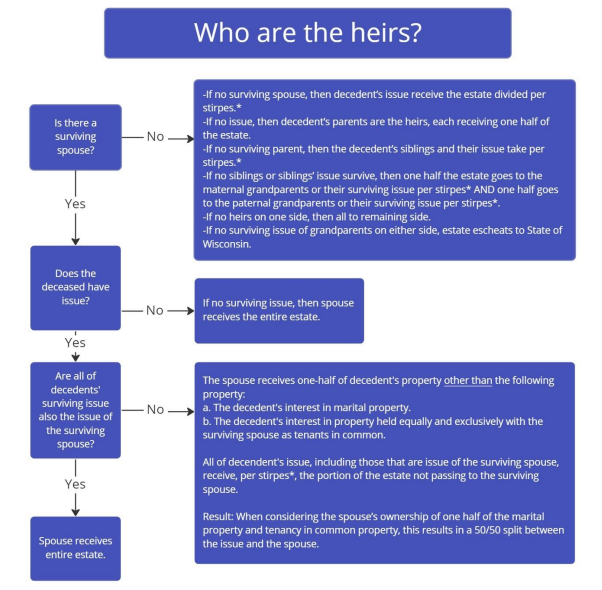While all estates worth $50,000 or more are typically required to undergo probate in Wisconsin, there are several ways that a person might structure their asset holdings so as to reduce the time and money spent on estate administration in Wisconsin, or to eliminate the need for probate entirely.
One such way is though joint ownership, whereby assets are held collectively with another person, such as a spouse or child. When one owner of a jointly-held asset dies, their holding share is automatically transferred to the surviving owner, who is now considered the sole owner of the asset. Because the asset now has a sole owner who is still living, it is not subjected to probate.
Another way to avoid administration of an asset is by holding it in a revocable living trust. Because the trust is revocable, the trust creator (grantor) maintains control over the assets in the trust until their death, at which point the property in the trust are distributed to beneficiaries as the grantor intended. Beneficiaries may be named when the trust is established, or the grantor can choose to leave the trust unfunded for a period of time and name beneficiaries whenever they choose to fund the trust. Grantors may also dictate other terms of revocable living trusts as well, enabling them to maintain a high degree over who is to receive assets and when. Property held in revocable living trusts is not subjected to probate, as it will pass to a clear owner, the beneficiary, after the grantor’s death.
As in revocable living trusts, naming beneficiaries for eligible assets enables them to bypass estate administration. Many asset holdings, including bank accounts, retirement accounts, and life insurance policies, allow owners to name beneficiaries who will receive the property upon the original owner’s death or at another specified time. Assets with named beneficiaries do not go through probate.
Payable on Death (POD) Accounts also do not undergo probate. Also called Totten Trusts, POD accounts are relatively simple to establish, and name beneficiaries for bank accounts or certificates of deposit (CDs). POD arrangements can allow large amounts of assets to avoid probate, as, when the account holder dies, all of the assets in the account transfer to the beneficiary.
While probate can be expensive and time-consuming, there are many ways to shorten it or eliminate the need for it entirely. A qualified attorney can help to establish a plan to exempt as many of your assets as possible from estate administration so that more of what you work hard for goes to your loved ones upon your death.


